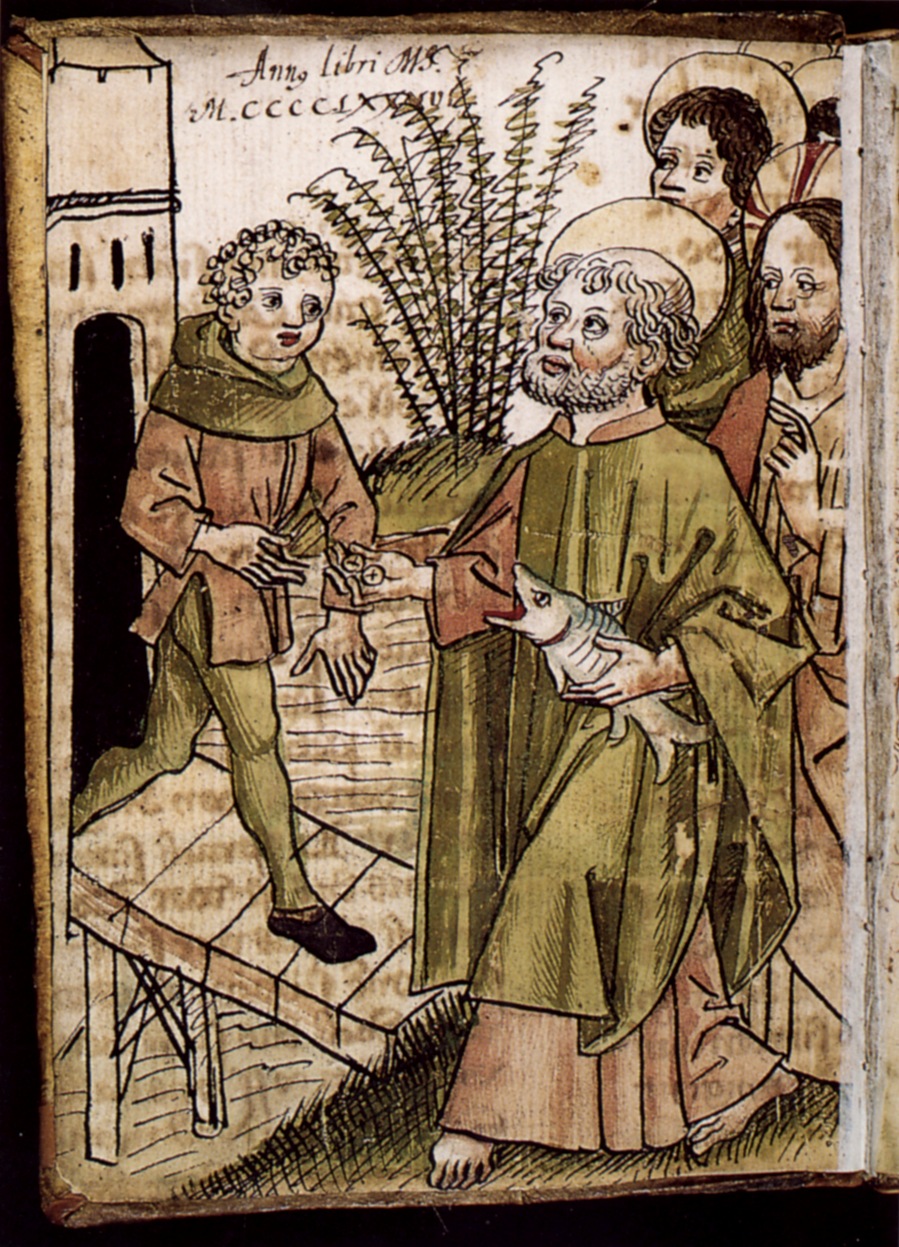Reference links:
Old Testament
Moses murders a man! Moses went to visit his people, and he saw a Egyptian beating a Hebrew man. Moses murdered the man and hid his body in the sand. Next day, Moses visits his people again, and it comes out that people know he had murdered the Egyptian. In response, Moses flees.
He flees to Midian, where he helps protect a group of shepherdess sisters from harassment by the local yokels. Reuel, the father of the girls, invites Moses to stay with them. Moses settles down with the family, and eventually marries Reuel’s daughter Zipporah. Not bad for a courtship story, but it lacks the level of detail which makes Jacob’s courtship or Isaac’s courtship by proxy compelling.
Years later, while Moses tends the sheep of his father-in-law Jethro, he leads the flock to Sinai, “the mountain of God”. At Sinai, God talks to Moses from a bush.
Now wait a second, did you see what I tried to pull on you there. First, I say that Moses’ father-in-law is Reuel, then I say his name is Jethro. The Bible tries the same thing. In Exodus 2 we see the following references to Reuel.
When the girls returned to Reuel, their father …
In time, Reuel gave Moses his daughter Zipporah to be his wife .
Then, at the beginning of Exodus 3 we read
One day Moses was tending the flock of his father-in-law, Jethro, the priest of Midian
For this apparent change of name, the New Living Translation gives the following textual note
Moses’ father-in-law went by two names, Jethro and Reuel
That answer fails to satisfy. Wikipedia does a little better,
It has been suggested that Reuel was his proper name, and “Jether” or “Jethro” was his official title (i.e., “excellency”).
That is somewhat feasible, but it still seems like something of a stretch. Neither the text itself nor anything that could be referenced seem to be anything indicating that this usage was common.
In any case, back to the bush. The bush is burning, but it is not being consumed. God talks to Moses from the bush. Pretty cool! You notice how back in the day when God wanted to get thing done he did not bother with placing ambiguous messages in your heart? God would chat with Abraham in person, and with Isaac, Jacob, and Joseph in dreams. Even when God used symbolic dreams, like with Pharaoh, he was considerate enough to make sure there was someone like Joseph around to interpret them. And today, God talks through a burning bush. One has to wonder why God apparently cannot be so direct now.
God tells Moses that he is aware of the problems in Egypt and has decided to rescue his chosen people and lead them back to the of Canaan, the “land flowing with milk and honey”. Moses and God have a bit of an exchange about God’s name. Then God tells Moses that the elder’s of Israel will accept his message, but Pharaoh will not let the Hebrew people go. God promises to raise his hand against the Egyptians and help the Hebrew people obtain all the wealth of the Egyptians.
New Testament
Jesus goes on about how John the Baptist was Elijah returned. Possibly interesting if you care about whether or not Jesus fulfills Messianic prophecies. Rather dull if you do not.
Then we get onto more exciting things. Jesus’ disciples were unable to heal a boy, so he is brought to Jesus. Jesus lectures his disciples about their lack of faith. Apparently, with even a little faith, you can move mountains. We also hear a little about what Jesus thinks of humanity. Contrary to what some of his modern day followers would have you believe, it is not always positive.
You faithless and corrupt people! How long must I be with you? How long must I put up with you?
 Jesus was not so big on his followers, apparently. Remember, these are people who have faith in him, but just not enough to extract demons or move mountains. So remember, if your faith in Jesus is not strong enough to allow you to move mountains, he may very well be wondering how long he will have to put up with you.
Jesus was not so big on his followers, apparently. Remember, these are people who have faith in him, but just not enough to extract demons or move mountains. So remember, if your faith in Jesus is not strong enough to allow you to move mountains, he may very well be wondering how long he will have to put up with you.
Today, we also read about Jesus’ opinion of the Temple tax. The short version is that he and his followers do not have to follow it, but Jesus decides to pay it anyway because Peter had told the tax collectors that they would. Peter finds the money to pay the taxes in the mouth of a fish. Not particularly profound, but I am amused by the idea of getting money from a random fish.
Psalms and Proverbs
Today’s psalm, psalm 22, is a famous one. In particular, it is the one that Jesus quotes on the cross,
My God, my God, why have you abandoned me?
It is also the one that is claimed to be a prophecy of Jesus’ death on the cross. But we will leave that commentary for when we get to the crucifixion. Even without that association, this psalm is pretty grim.
My life is poured out like water,
and all my bones are out of joint.
My heart is like wax,
melting within me.My strength has dried up like sunbaked clay.
My tongue sticks to the roof of my mouth.
…
I can count all my bones.
Sounds miserable.

